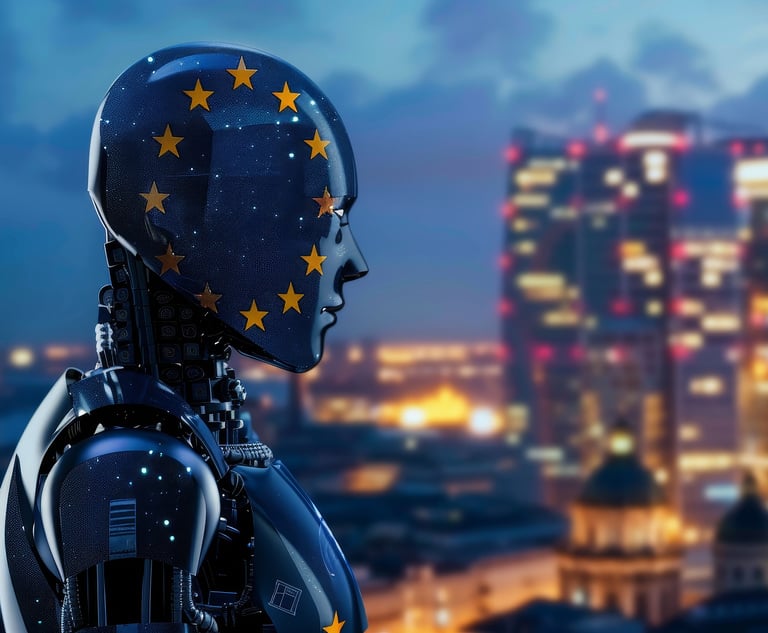Features

ALM Releases AI Law Treatise
ALM teamed up with AI legal experts at McDermott Will & Emery to create a comprehensive treatise on all things AI and the law, covering the gamut of legal areas that AI touches, from the history of AI to its impact on intellectual property, employment law, data privacy, ethics, contracts, torts, risk mitigation, as well as gather all of the U.S. federal and state laws on AI as well as international laws and industry standards in one place.
Features

Copyrights Battles and the Downfall of EU AI Act
While the EU AI Act certainly deserves compliments for both its pioneering nature and numerous thoughtful provisions aimed at the efficient and effective regulation of modern AI, it is not without its drawbacks.
Features

The Emerging, Opaque and Competitive Landscape of AI Search
In the months and years ahead, Search Engine Optimization, or SEO, will increasingly give way to AEO, Answer Engine Optimization. The latter focuses on helping AI-powered search engines understand and cite your content in their direct answers.
Features

Copyrights and the Downfall of the EU AI Act
While the EU AI Act certainly deserves compliments for both its pioneering nature and numerous thoughtful provisions aimed at the efficient and effective regulation of modern AI, it is not without its drawbacks.
Features

Denmark Deepfake Strategy Anchored In Copyright, Not Privacy
Denmark aims to make EU history by using copyright law — not privacy rules — to crack down on deepfakes and protect personal likenesses, diverging from the approaches adopted in the U.S. and other nations.
Features

Inside the AI Revolution: Reshaping Law and Public Policy
For attorneys, especially those working in and around state governments, where lobbying and practicing law often go hand-in-hand, the writing on the wall is clear: manual research and traditional legal software are not optimized for these tasks. This is why generative AI is starting to establish a presence in the legal and lobbying industries.
Features

In the AI Era, Authority Is the Key to Future-Proofing a Law Practice
The more we become commodities — and most legal marketers are happy to assist in this process — then the less we can charge our clients, the less we can match up with the right clients, and the easier we are to be replaced by AI. The old tricks that fooled Google will soon stop working.
Features

Meta’s Use of Copyrighted Books to Train LLMs Ruled ‘Fair Use,’ But Ruling Limited
A federal judge handed Meta a major win on June 24 in a closely watched copyright case over its use of books to train large language models, but the ruling stopped well short of giving tech companies blanket protection to scrape creative works for artificial intelligence.
Features

As Restaurants Roll Out AI, Cyber Risks Are On the Menu
A quick-service restaurant holding company’s plans to use artificial intelligence to enhance customers’ ordering experience is highlighting a new era of cyber liability risks. Data privacy concerns continue to drive lawsuits, and plaintiffs’ attorneys continue to seek creative ways to litigate privacy violations alongside rapidly evolving AI technologies, often bringing claims under laws that predate the internet itself.
Features

Med Tech Patent Case Offers Examples for AI Enabled Innovation In Any Industry
While the case discussed in this article involved medical health technology, the implicated issues inform patent strategies for AI enabled inventions across all industries. Patent applicants should expect to see reliance by the Patent Office not only on its 2019 Guidance but also on its examples illustrating application of the guidance in the context of AI related innovation.
Need Help?
- Prefer an IP authenticated environment? Request a transition or call 800-756-8993.
- Need other assistance? email Customer Service or call 1-877-256-2472.
MOST POPULAR STORIES
- The DOJ's New Parameters for Evaluating Corporate Compliance ProgramsThe parameters set forth in the DOJ's memorandum have implications not only for the government's evaluation of compliance programs in the context of criminal charging decisions, but also for how defense counsel structure their conference-room advocacy seeking declinations or lesser sanctions in both criminal and civil investigations.Read More ›
- The DOJ's Corporate Enforcement Policy: One Year LaterThe DOJ's Criminal Division issued three declinations since the issuance of the revised CEP a year ago. Review of these cases gives insight into DOJ's implementation of the new policy in practice.Read More ›
- Strategy vs. Tactics: Two Sides of a Difficult CoinWith each successive large-scale cyber attack, it is slowly becoming clear that ransomware attacks are targeting the critical infrastructure of the most powerful country on the planet. Understanding the strategy, and tactics of our opponents, as well as the strategy and the tactics we implement as a response are vital to victory.Read More ›
- Mixed Ruling in Jefferson Starship Band Name SuitWhat's in a rock band's name? Plenty, if you are talking about Jefferson Starship, which goes back more than 40 years, has had more than 30 members and was born from the 1960s psychedelic rock band Jefferson Airplane.Read More ›
- Use of Deferred Prosecution Agreements In White Collar InvestigationsThis article discusses the practical and policy reasons for the use of DPAs and NPAs in white-collar criminal investigations, and considers the NDAA's new reporting provision and its relationship with other efforts to enhance transparency in DOJ decision-making.Read More ›
